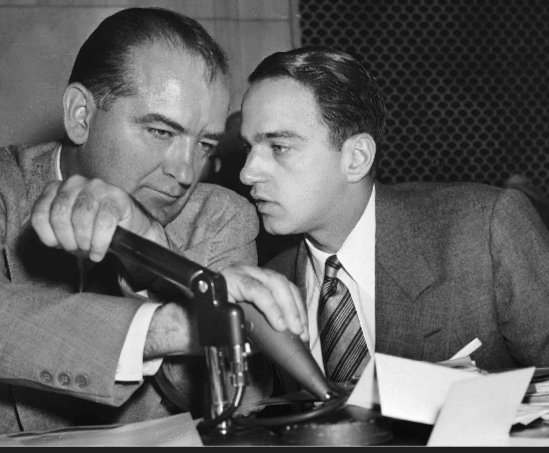The New McCarthyism
The New McCarthyism
In the 1950s, Senator Joseph McCarthy spearheaded a campaign of fear and suspicion that came to define an era. Known as McCarthyism, it was marked by government-led blacklists, public interrogations, and mass firings of anyone suspected of communist sympathies. Artists, academics, and government employees were all targets; careers were destroyed not by proven disloyalty, but by mere association or accusation. Though this dark chapter in U.S. history is often remembered as a relic of the Cold War, echoes of McCarthyism appear to be returning in new forms today.
The modern climate of ideological conformity suggests that freedom of thought and speech—core democratic principles—are once again under threat. In mid-20th-century America, it was enough to question capitalism or sympathize with socialism to be branded “un-American.” Today, dissent from dominant political or economic ideologies can lead to similar outcomes: harassment, firing, or social ostracism. This is especially visible in industries tied closely to public visibility and institutional prestige, such as academia and entertainment.
Consider academia, once a bastion of intellectual diversity. Despite the professed values of free inquiry, it remains rare to find openly Marxist or anti-capitalist professors at major U.S. universities. In recent years, several high-profile academics have faced institutional pressure, resignation, or public criticism for their views on race, Israel, or capitalism. The departure of Dr. Cornel West from Harvard over disputes involving academic freedom and political expression highlights an environment increasingly hostile to ideological dissent.
The entertainment industry, too, reflects these pressures. Reports and public commentary suggest that numerous figures—actors, musicians, and producers—have left the U.S. or withdrawn from public life due to growing political polarization and ideological scrutiny. While some cases may be exaggerated or speculative, the perception of a “cultural purge” is spreading across social media and popular discourse. It evokes the same fear-driven environment of mid-century America, where deviation from the dominant narrative—then anti-communism, now perhaps a new form of ideological nationalism—could end a career overnight.
In politics and government, similar dynamics are evident. Trump’s removal of senior military officials and civil servants who opposed him during his administration signaled a reemergence of political loyalty tests—something disturbingly reminiscent of the McCarthy era. The notion that ideological alignment outweighs competence or independence is a hallmark of authoritarian tendencies, not democratic governance.
This pattern is not simply domestic. The growing consolidation of wealth and power by global billionaires has further distorted democratic processes. Economic elites increasingly use their resources to shape media narratives, fund political campaigns, and influence academic research. In doing so, they help maintain ideological conformity around the sanctity of capitalism, often suppressing critical perspectives that challenge structural inequalities.
Even sex workers find themselves on the frontlines of this new ideological policing. Many sex workers advocate for bodily autonomy and economic independence—positions that often clash with capitalist labor structures. Their resistance to control and surveillance makes them targets of both state and social repression, echoing the McCarthyite labeling of “subversives” in the past. In my experience, billionaire interests create a left/right narrative in sex work thought and legislation, which hijacks the normative perspective through a funnel system of radicalization.
Ultimately, the “new McCarthyism” is less about communism and more about control—control over thought, speech, and expression. Whether enforced through government action, corporate influence, or cultural pressure, the outcome is the same: a narrowing of the boundaries of acceptable opinion. If freedom of thought is to remain meaningful, society must resist this trend toward ideological conformity. The lessons of history are clear: when fear governs expression, democracy withers.
References
"We Have to Move Fast": Jane Fonda Relaunches Father's Free Speech Group to Counter Trump Censorship
https://youtu.be/lR5S-ZBn8oU?si=391H6z4Q7mmdoXFL
Baker, P. (2020, November 9). Trump fires Defense Secretary Mark Esper, ending a rocky tenure. The New York Times.
Flaherty, C. (2022, April 15). The vanishing campus Marxist. Inside Higher Ed.
Gilens, M., & Page, B. I. (2014). Testing theories of American politics: Elites, interest groups, and average citizens. Perspectives on Politics, 12(3), 564–581.
Hartocollis, A. (2024, January 2). Claudine Gay resigns as Harvard’s president after plagiarism controversy. The New York Times.
West, C. (2021, July 12). Why I left Harvard again. The Guardian.


